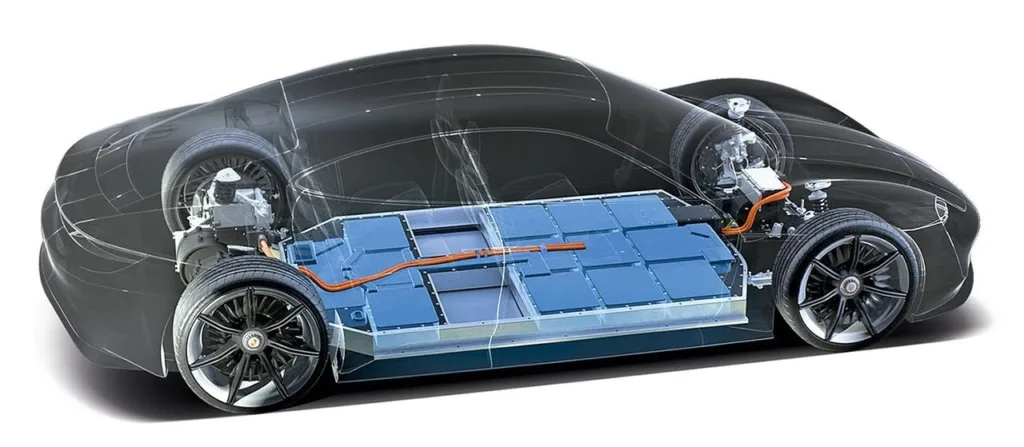Electric vehicles (EVs) are revolutionizing the way we think about transportation, but one concern still looms large for potential buyers: battery life. How long will EV batteries last? Will they need expensive replacements sooner than expected? A groundbreaking study from Stanford University has turned these concerns on their head, revealing that EV batteries may actually last up to 40% longer in real-world conditions than previously thought. This discovery could reshape the EV industry and encourage more people to embrace electric mobility.

Contents
The Problem with Traditional EV Battery Testing
Most of what we know about EV battery lifespan comes from laboratory testing. These tests simulate battery performance using constant discharge and recharge cycles. While this method provides a controlled environment, it fails to capture the complexities of real-world driving.
In reality, EVs experience a wide range of conditions that impact battery performance, such as:
- Short trips and long-distance travel: Different driving patterns place varying demands on the battery.
- Idle time: EVs often spend significant time parked or stopped at traffic signals.
- Regenerative braking: This feature recaptures energy during braking, potentially extending battery life.
- Diverse charging habits: Some drivers charge their EVs daily, while others charge only once or twice a week.
These factors are not accounted for in traditional testing, leading to inaccurate predictions about how long EV batteries will last in real-world scenarios.
Real-World Testing Reveals Surprising Results
To address this gap, researchers at the SLAC-Stanford Battery Center conducted a two-year study involving 92 commercially available lithium-ion battery packs. They created four distinct discharge profiles based on real-world driving data and tested the batteries under these conditions. The results were both surprising and encouraging:
- Short, sharp acceleration: Contrary to expectations, this driving behavior was found to reduce battery degradation.
- Regenerative braking: This feature was shown to improve battery lifespan by recapturing energy during deceleration.
- Temperature impact: While the study maintained a constant temperature of 35°C, it acknowledged that extreme heat or cold could still negatively affect battery performance.
These findings challenge the long-held belief that real-world conditions are harsher on EV batteries than laboratory simulations. In fact, the study suggests that real-world driving may actually be less taxing on batteries in certain scenarios.
What This Means for EV Owners and Manufacturers
The implications of this study are far-reaching, offering benefits for both EV buyers and automakers:
1. Encouraging EV Adoption
With evidence that EV batteries can last longer than expected, more consumers may feel confident making the switch to electric vehicles. This could accelerate the global transition to sustainable transportation.
2. Improved Battery Management Systems
Automakers can use these findings to optimize battery management software, ensuring that EV batteries perform better and last longer in real-world conditions.
3. Extended Warranties
Manufacturers may offer longer battery warranties, providing greater peace of mind for EV buyers and reducing concerns about replacement costs.
4. Lower Total Cost of Ownership
Longer-lasting batteries mean fewer replacements, which can significantly reduce the overall cost of owning an EV.
The Road Ahead: More Research Needed
While the findings are promising, the study also highlights the need for further research. For example, the impact of extreme temperatures and other environmental factors on battery life needs to be explored in greater detail. Additionally, testing a wider range of battery chemistries and designs could provide a more comprehensive understanding of EV battery performance.
Why This Matters for the Future of EVs
This study is a game-changer for the EV industry. By aligning testing methods with real-world conditions, researchers and manufacturers can work together to improve battery technology and make EVs more reliable and accessible. As the industry continues to evolve, these findings could play a crucial role in accelerating the adoption of electric vehicles worldwide.
Final Thoughts: The Bright Future of EV Batteries
The discovery that EV batteries could last 40% longer than expected is a significant step forward for the electric vehicle industry. It not only addresses one of the biggest concerns of potential EV buyers but also paves the way for more sustainable and cost-effective transportation solutions. With continued research and innovation, the future of EVs—and their batteries—looks brighter than ever.
Also read- 2025 Bajaj Chetak Electric Scooter: A Game-Changer in the EV Market

